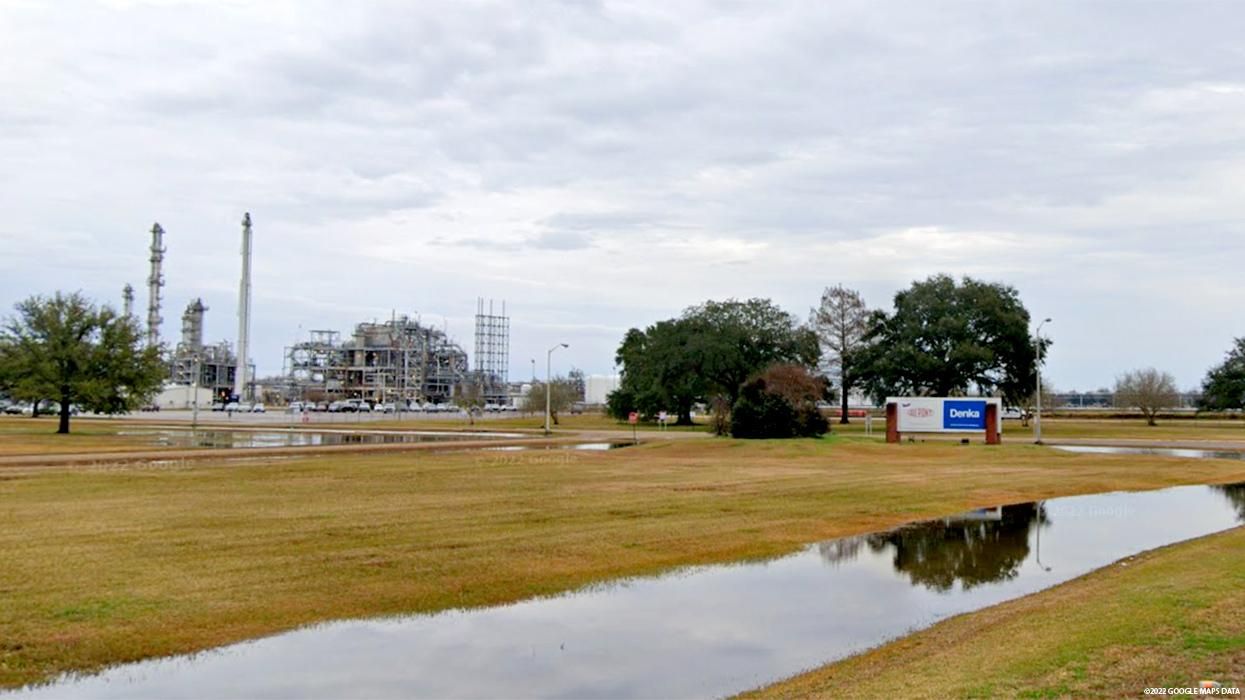The Environmental Protection Agency's civil rights division has issued its first citation against an area for failing to take action against disproportionate harm done to its Black residents.
The southeastern region in Louisiana is colloquially known as "cancer alley," home to the Denka Performance Elastomer synthetic rubber plant. Last year, ProPublica estimated that the cancer risk for residents was 1 in 210, which is 47 times what the EPA deems acceptable chloroprene exposure.
Chloroprene is classified by the EPA as a "likely human carcinogen," as it is a mutagen. Mutagens can cause cancer by mutating DNA, meaning children are at a higher risk due to their cells dividing more rapidly than those of adults.
According to the report, an elementary school resides just 1,500 feet from the Denka facility. The EPA found that students at the school, 75 percent of whom are Black, are regularly exposed to 11 times the acceptable amount of chloroprene. The agency also recommended to move students to different facilities immediately.
Robert Taylor is the executive director and founder of Concerned Citizens of St. John, the organization that filed the initial civil rights violation complaint with the EPA. He created the group in 2016 after an EPA report revealed the dangerous chloroprene levels.
“I went from fear to anger to shock that the government was allowing people to do this," Taylor told ProPublica.
The EPA's findings called upon the Louisiana Department of Environmental Quality (LDEQ) to "analyze cumulative impacts" for the community of St. John the Baptist Parish.
"EPA’s initial factual investigation strongly suggests that Louisiana residents who identify as Black and are living and/or attending school near the Denka facility have been subjected to adverse and disparate health impacts as a result of LDEQ’s decisions," the letter reads.
The EPA's report also noted that of the residents within a mile of the Denka plant, 93 percent are Black, despite only being 50 percent of the larger Parish area.
Taylor added: “Our government has abandoned us — we are just sacrifice zones.”
The EPA's commitment to combating environmental racism will be determined in the coming months as they negotiate terms and requirements with the Louisiana agencies.
Monique Harden, assistant director of law and public policy at the Deep South Center for Environmental Justice, told ProPublica while civil rights protections existed before the EPA, the government has often neglected to enforce them.
“What’s remarkable is that EPA, for the first time in a long time, is speaking the truth around environmental racism and willing to put civil rights enforcement tools out there,” Harden said. “There’s nothing new to any of this except that we have leadership at the EPA that wants to do something about it.”
- Environment - Advocate Channel ›
- EPA Launches New Office to Confront Racial Inequality in ... ›
- The Racism Within New York's Child Welfare System - Advocate Channel ›
- California County Declares Racism a Public Health Crisis - Advocate Channel ›
- Climate Change Disproportionately Impacts Latino Communities - Advocate Channel ›
- Students of Color Forced to Take Military Training Courses to Graduate High School - Advocate Channel ›
- EPA to Crack Down on Deadly Air Pollution - Advocate Channel ›
- US Cancer Rate Has Fallen 33 Percent Since 1991, Report Finds - Advocate Channel ›
- US Cancer Rate Has Fallen 33 Percent Since 1991, Report Finds - Advocate Channel ›
- Watch: World's Largest Hatching of Baby Turtles in History - Advocate Channel ›
- Criminal Charges Against Former Michigan Governor Related to Flint Water Crisis Dismissed ›



















































